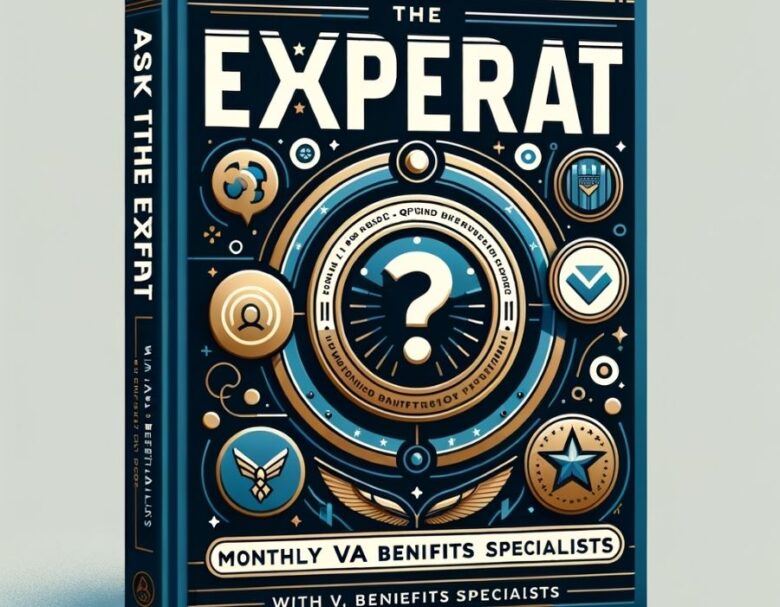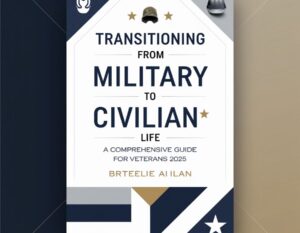Navigating the world of VA benefits can be complex and often confusing. To help veterans better understand their benefits, we’ve initiated a monthly Q&A session with VA Benefits Specialists. These experts provide insights, clarifications, and valuable advice on a wide range of benefit-related topics. This article compiles some of the most informative questions and answers from recent sessions.
Understanding Disability Compensation
Disability compensation is one of the most common benefits veterans seek. Our experts shed light on some frequently asked questions.
Q: How is my disability rating calculated?
A: The VA uses the Combined Ratings Table to calculate your overall disability rating. It’s not a straightforward addition of individual ratings. For example, if you have a 30% rating for one condition and a 20% rating for another, your combined rating would be 44%, which is then rounded to 40%.
Q: Can my disability rating be reduced?
A: Yes, the VA can propose to reduce your rating if they believe your condition has improved. However, there are protections in place:
- Ratings in effect for 5 years or more require sustained improvement
- Ratings in effect for 20 years or more are protected from reduction
- 100% ratings have special protections
Remember, you have the right to appeal any proposed reduction.
Education Benefits Explained
The GI Bill and other education benefits can be game-changers for veterans pursuing further education.
Q: How long do I have to use my Post-9/11 GI Bill benefits?
A: For veterans who left active duty on or after January 1, 2013, there is no time limit to use Post-9/11 GI Bill benefits. For those who left active duty before that date, benefits expire 15 years after your last separation date.
Q: Can I use my GI Bill for online courses?
A: Yes, you can use your GI Bill for accredited online courses. However, the housing allowance for exclusively online students is typically lower than for in-person students.
Healthcare Benefits Insights
VA healthcare is a comprehensive benefit that many veterans don’t fully understand.
Q: Do I have to pay for VA healthcare?
A: While many veterans receive cost-free healthcare, some may have to pay small copayments for certain services or medications. This depends on your priority group assignment, which is based on factors like service-connected disabilities and income.
| Priority Group | Copayment Required? |
|---|---|
| 1-5 | Generally No |
| 6-8 | May Apply |
Check with your local VA for specific copayment information.
Q: Can I use VA healthcare alongside private insurance?
A: Yes, you can use both VA healthcare and private insurance. In fact, the VA encourages veterans to maintain private insurance when possible.
Home Loan Benefits Clarified
VA home loans offer significant advantages, but there are some misconceptions about how they work.
Q: Is there a limit to how much I can borrow with a VA loan?
A: As of 2020, there is no limit on the amount you can borrow with a VA loan. However, there are limits on the amount of liability the VA will assume, which may affect the amount a lender is willing to lend you.
Q: Can I use a VA loan more than once?
A: Yes, you can use your VA loan benefit multiple times. You can even have more than one VA loan at a time, as long as you have remaining entitlement and meet the lender’s requirements.
Understanding Pension Benefits
VA pensions are an important benefit for some veterans, but eligibility can be confusing.
Q: Who is eligible for VA pension benefits?
A: VA pension benefits are available to wartime veterans who meet certain criteria:
- Age 65 or older, OR permanently and totally disabled
- Limited income and net worth
- 90 days of active duty service, with at least one day during a wartime period
Specific service requirements may vary based on when you served.
Q: How does the VA calculate pension amounts?
A: The VA calculates your pension by subtracting your countable income from the Maximum Annual Pension Rate (MAPR) for your situation. The result is divided by 12 and rounded down to determine your monthly pension payment.
Navigating Survivor Benefits
Survivor benefits are crucial for supporting the families of deceased veterans.
Q: What is Dependency and Indemnity Compensation (DIC)?
A: DIC is a tax-free monetary benefit generally payable to eligible survivors of:
- Service members who died in the line of duty
- Veterans whose death resulted from a service-related injury or disease
- Veterans who had certain VA-rated disabilities at the time of death
Q: Can a surviving spouse remarry and still receive DIC?
A: If a surviving spouse remarries before age 57, DIC benefits generally stop. However, if the remarriage ends, DIC benefits can be reinstated. Remarriage at age 57 or later does not affect DIC eligibility.
Understanding Appeals
The appeals process is an important recourse for veterans who disagree with a VA decision.
Q: What are my options if I disagree with a VA decision?
A: Under the new appeals system, you have three main options:
- Supplemental Claim: Submit new and relevant evidence
- Higher-Level Review: Request a review by a senior claims adjudicator
- Board Appeal: Appeal directly to the Board of Veterans’ Appeals
Each option has different requirements and potential outcomes.
Q: How long does the appeals process take?
A: The time can vary greatly depending on the type of appeal and the complexity of the case. The VA aims to complete Supplemental Claims and Higher-Level Reviews within 125 days. Board Appeals can take longer, especially if a hearing is requested.
Vocational Rehabilitation and Employment
VR&E services can be a valuable resource for veterans with service-connected disabilities.
Q: Who is eligible for VR&E services?
A: To be eligible for VR&E services, you must:
- Have received, or will receive, a discharge that is other than dishonorable
- Have a service-connected disability rating of at least 10%, or a memorandum rating of 20% or more from the VA
- Apply for VR&E services
Q: What types of services does VR&E provide?
A: VR&E provides a range of services, including:
- Comprehensive rehabilitation evaluation
- Vocational counseling and planning
- Employment services
- Assistance finding and keeping a job
- On-the-job training, apprenticeships, and non-paid work experiences
Frequently Asked Questions
Q: How often are these expert Q&A sessions held? A: These sessions are typically held monthly, but check with your local VA office for specific schedules.
Q: Can I submit questions for future Q&A sessions? A: Yes, many VA offices accept question submissions for upcoming sessions. Contact your local VA for details.
Q: Are these Q&A sessions available online? A: Some VA offices offer online or virtual Q&A sessions. Check the VA website or contact your local office for information.
Q: How can I verify the information provided in these Q&A sessions? A: While the information provided is from VA experts, always verify important details on the official VA website or with a VA representative.
Q: If my question isn’t answered in a session, what should I do? A: You can contact the VA directly, speak with a Veterans Service Officer, or submit your question for the next session.
Conclusion
These expert Q&A sessions provide invaluable insights into the complex world of VA benefits. They offer veterans the opportunity to get clear, authoritative answers to their most pressing questions about disability compensation, education benefits, healthcare, home loans, pensions, survivor benefits, appeals, and vocational rehabilitation.
Remember, while these answers provide general guidance, every veteran’s situation is unique. It’s always best to consult with a VA representative or a Veterans Service Officer for personalized advice about your specific circumstances.
Stay informed about upcoming Q&A sessions in your area. These events are excellent opportunities to get direct answers from VA Benefits Specialists and to learn from the questions of fellow veterans. The more you understand about your benefits, the better equipped you’ll be to make informed decisions and access the support you’ve earned through your service.
Don’t hesitate to ask questions and seek clarification. Your benefits are an important part of the nation’s commitment to you for your service, and understanding them fully is key to making the most of the support available to you.
Remember, the VA and its experts are there to serve you. Take advantage of resources like these Q&A sessions to ensure you’re getting the most out of your VA benefits. Your proactive approach to understanding and accessing your benefits reflects the same initiative and dedication you demonstrated in your military service.




